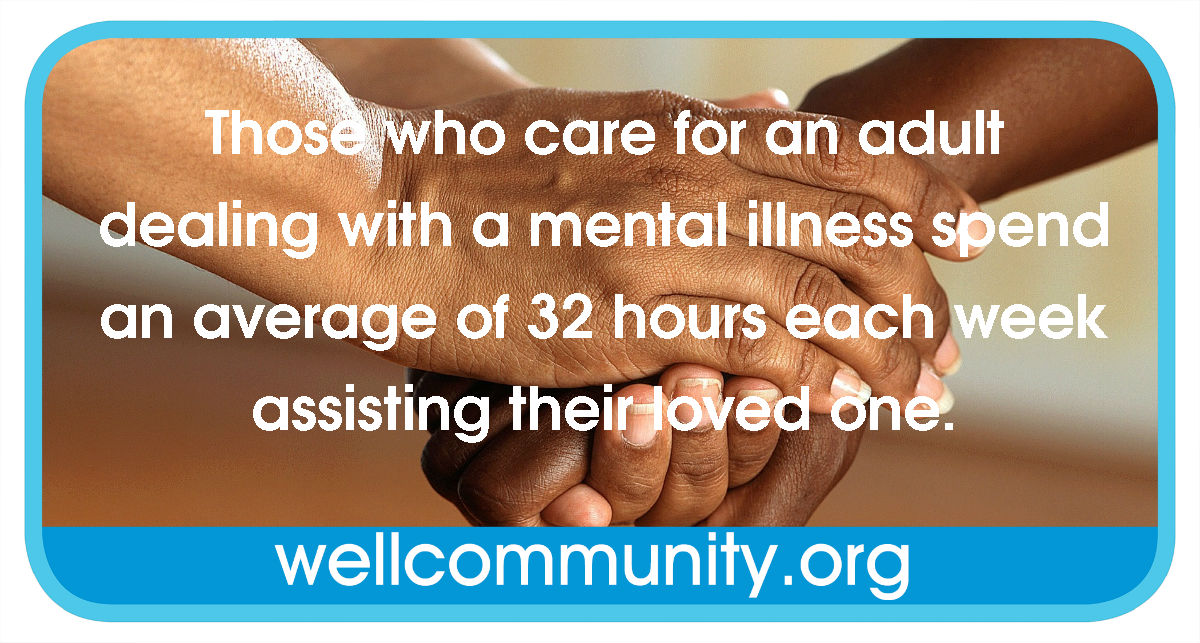 Mental illnesses have a ripple effect. The National Alliance on Mental Illness recognizes that the “challenges of mental illness do not only affect an individual’s family members but also friends, teachers, neighbors, coworkers and others in the community.” Often, those who serve as caregivers are impacted the most.
Mental illnesses have a ripple effect. The National Alliance on Mental Illness recognizes that the “challenges of mental illness do not only affect an individual’s family members but also friends, teachers, neighbors, coworkers and others in the community.” Often, those who serve as caregivers are impacted the most.
According to On Pins and Needles: Caregivers of Adults with Mental Illnesses, a study published earlier this year by the National Alliance for Caregiving (NAC), at least 8.4 million Americans provide care for an adult dealing with an emotional or mental health issue. Here are six key facts from the study that shed light on how these individuals are affected by their caregiving role.
1. Caregiving is often a full-time job. On average, those who care for an adult struggling with a mental health issue spend 32 hours each week assisting their loved ones. Nearly one in five spends 40 hours or more.
2. Most caregivers have jobs in addition to providing care. Over six in 10 caregivers are employed, and many struggle to juggle responsibilities on the job and assisting their loved one. In some cases, stigma surrounding mental health issues prevents them from asking their employers for accommodations that could make it easier for them manage the many tasks on their plates. Those who care for someone dealing with a mental illness are less likely to have flexible hours than those providing care for individuals affected by other illnesses.
3. Many have trouble finding support services for their loved one. Many caregivers struggle to find programs that can assist and support their loved ones. Of those who said that the person they care for needs peer support, over half (58%) have had trouble finding it. And, nearly half (49%) of those who say their loved one needs a case manager have struggled to connect with someone who can help.
4. Stress is the norm. Nearly three quarters of caregivers said they feel high emotional stress. This stress can impact their own well-being in many ways—from interrupting sleep to causing headaches to making it hard to concentrate. Stress can also make it more diffivult for them to deal with the challenges of supporting their loved one.
5. Caregiving can negatively impact physical health. People who provide care for an adult managing a mental illness are significantly less likely than caregivers in general (those who care for someone with any condition) to report being physically healthy. Just a third said they were in excellent or very good health. One contributing factor is lack of time or energy to pursue healthy habits. Approximately four in 10 said they find it difficult to take care of their own health. Over six in 10 who care for an adult child reported that caregiving has made their health worse.
6. Caregiving is often rewarding. Although providing care for someone struggling with mental illness can be taxing in many ways, most caregivers said that there are positive aspects of their role. For example, the majority (59%) said that they’re become closer to their loved one as a result of providing care.
The Well Community and Caregivers
Many members of The Well Community do not have support from families or friends. For those who do, The Well comes alongside those caring for adults with serious mental illnesses by providing some of the services that these caregivers often struggle to find. According to the 2015 Annual Report, Well Community staff provided 1,359 hours of case management services, helping members access resources such as food stamps, clothing, housing and transportation, as well as connecting them with health care providers.
The Well Community also partners with caregivers by offering the vital peer support that most say their loved ones need. It gives members a place to belong, offering encouragement and a sense of community. “We’re like a family,” explains Well Member Charles. “We have our ups and downs like every other family, but we love each other. We pray for one another.”
Learn how to pray for families who are caring for loved ones dealing with mental health difficulties: 31 Ways, 31 Days 2 Pray 4 Families.
Your gift will help The Well Community come alongside caregivers by offering vital support services to those dealing with serious mental illnesses.
